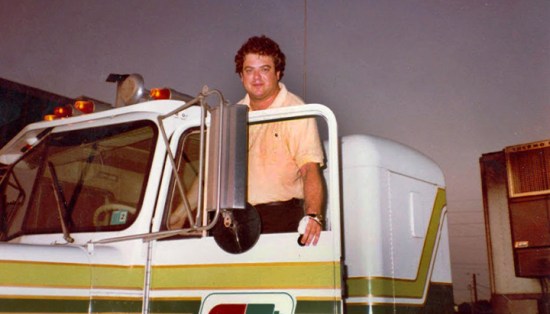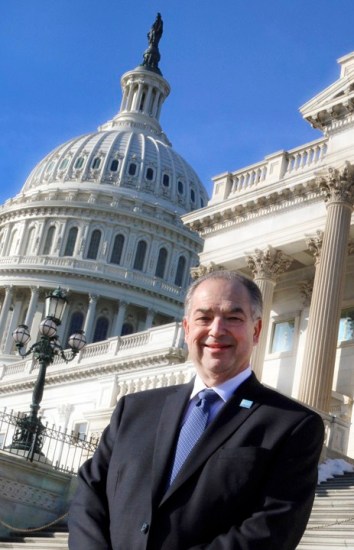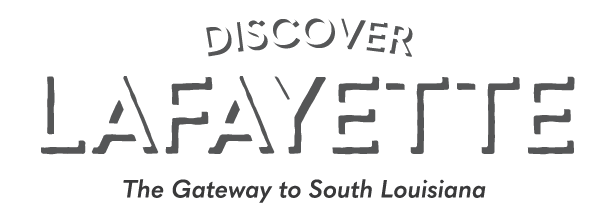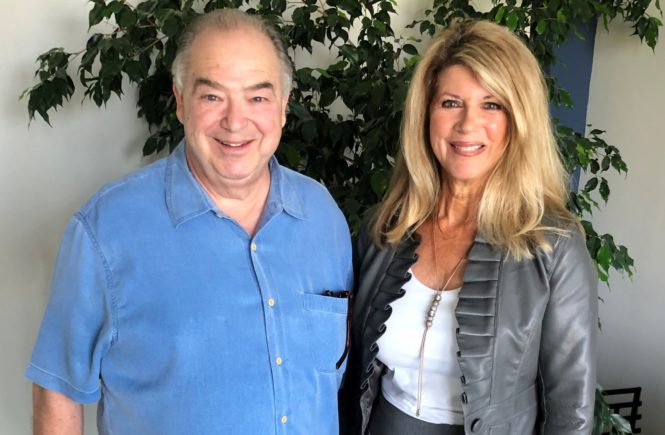Podcast: Play in new window | Download (Duration: 57:22 — 78.8MB)
Lafayette native Jim Gossen has been immersed in the seafood industry since the early 1970s when he began picking up and selling Gulf seafood out of the back of his pickup truck to source fresh seafood for Landry’s Restaurants. His hands-on experience and relationship building over the past few decades have given Jim an up-close understanding of the challenges facing the fisherman who captain the seafood industry and what it will take to pass on the tools for business survival to the next generation of fisherman. His message is clear: the Gulf Seafood industry must have a unified voice and be innovative as it adapts to changing circumstances if it is to remain viable for future generations.
In this episode of Discover Lafayette with Jan Swift, Jim Gossen shares his love of the seafood industry, provides an historical overview of how consumers’ tastes and demand for seafood has evolved, and explains why he believes Louisiana’s fisherman can successfully compete globally by focusing on the quality of their superior product as compared with other country’s cheaper and inferior seafood offerings.
Jim Gossen’s dedication to the seafood industry led him to great success as a restauranteur, seafood processor, manufacturer and distributor of fresh Louisiana seafood. In the early days of his initial business, Creole Foods, Jim drove his own 18-wheeler to source and deliver shrimp and red snapper. Creole Foods quickly evolved into a successful business renamed Louisiana Foods, a global seafood endeavor that Jim sold to Sysco in 2012. He served as Chair of the board of Sysco until his recent retirement.
Jim currently serves as Chair of the Gulf Seafood Foundation, which promotes Gulf seafood, tourism, and culture. He also owns Jimmy G’s by the Houston airport and Louisiana Catering, an oil-related catering business. A recipient of the Environmental Protection Agency’s Gulf Guardian Award for his work in promoting the use and sale of by-catch (seafood such as Cobia or Triggerfish caught unintentionally while hauling in fishing nets that can be sold to restaurants), he has also been recognized by “My Table’s Legends of the Industry, Southern Living’s Heroes of the New South Awards, and is one of Cooking Light’s 20 Food Heroes in America.
While today’s restaurant menu typically offers salmon, crabcakes, and a variety of fish dishes, it wasn’t always so. When Jim entered the distribution business in the early 1970’s and moved to Houston, seafood was not a staple on menus. No one knew what Creole meant, no one knew what crawfish was. In fact, when Jim drove his fresh seafood offerings to Houston, he also carted along Community Coffee, Barq’s Rootbeer, Camellia Red Beans, tasso, Veron’s Andouille Sausage, and New Orleans’ Leidenheimer French Bread, all of which were unknown commodities outside of Louisiana. They quickly became hits in the cowboy market of Houston and beyond…..as did Jim Gossen.

At the age of 30, Jim Gossen on one of his trips to pick up food products along with fish, shrimp and oysters in Louisiana. Photo Gossen Archives
Over the years, tastes have changed and the manner in which seafood is sourced has also changed dramatically. In the 1980s, restaurant patrons feasted on Speckled Trout and Redfish. Both of these fishes were made popular by Chef Paul Prudhomme and his “blackened” seafood dishes. No one could have imagined how fast the popularity of these dishes would take off worldwide and the fish became scarce due to high consumer demand. Limits were placed upon the catch of speckled trout and redfish and now they are only accessible by the recreational fishermen in the region. China and other countries, however, have been willing to step in and meet the demand for affordable and accessible seafood.

“Our Gulf seafood industry has been forced to compete on price, It is time to stop competing on price and instead compete on quality.” Jim Gossen Photo by Ed Lallo
Consumers who appreciate wild-caught fish are willing to pay more for the premium product, but many cannot afford this choice or may not understand the difference between a wild catch and farm-raised seafood. Today, the majority of seafood is farm-raised. Jim explains, “We don’t have enough shrimp in the Gulf to supply the demand worldwide; We don’t have any large seafood processing plants. If we want to continue to eat our own locally sourced seafood, we can’t continue to do what we’ve been doing.”
While the seafood industry is an important component of our culture, little had been done to study its reach and economic impact on the region. Dr. Geoff Stewart of UL-Lafayette is working on a study of the seafood supply chain in Vermilion, St. Mary and Iberia parishes, funded by a grant from the U. S. Dept. of Agriculture Rural Business Development. Interviews with people in the seafood industry detailed the challenges and shed light on how the industry can leverage opportunities for growth. The consensus is that the Gulf seafood industry can’t compete with China on price, so they must compete on quality. Jim explained that in today’s industry and its small profit margins, the typical fisherman wouldn’t be able to afford a boat unless it was passed down from father or grandfather. So, the challenge for the industry is how to entice young people to embrace commercial fishing as a viable vocation, and how to market premium quality seafood that will command a fair market price so as to sustain the industry into the future.

“Attracting the next generation of fishermen has to be the top priority. It is up to us to help the next generation sustain their business so we can sustain the seafood industry. The Gulf is our ‘money tree’ beneath the sea. We have some of the best seafood in the world coming out of the Gulf of Mexico. We need to help fishermen learn to fish more efficiently, keep seafood fresher and deliver the highest-quality seafood to the marketplace ” Gulf Seafood Foundation President Jim Gossen. Photo by Ed Lallo
Proprietors and chefs such as Dickie Brennan, Donald Link, and John Besh see the value in purchasing local, high-quality seafood and don’t try to drive down prices to shortchange the fisherman. They understand that for their restaurants to be successful, they must consistently offer premium choices, and commercial fishermen must survive if the restaurants are to survive. The challenge is to heighten awareness in consumers that buying local and obtaining a fresh, quality product is worth the additional investment which will sustain the culture we have taken for granted for generations. As Jim said, “People don’t come to Louisiana to eat halibut or sole, they come here for our shrimp, oysters, and crawfish.”
Jim built his business by building relationships with his seafood and restaurant partners. He placed great value on the people he worked with and still does. Even though Jim recently retired from Sysco, he is still active and serves as President of the Board of the Gulf Seafood Foundation. He is an industry leader for the recovery and improved sustainability of the Gulf of Mexico’s seafood industry. A recipient of the Environmental Protection Agency’s Gulf Guardian Award, My Table’s Legends of the Industry, Southern Living’s Heroes of the New South Awards, Jim is also one of Cooking Light’s 20 Food Heroes in America.
Thanks to our friend, Jim Gossen, for his lifetime dedication to the seafood industry. Please encourage your family and friends to buy local seafood and support our local economy and commercial fishermen.





